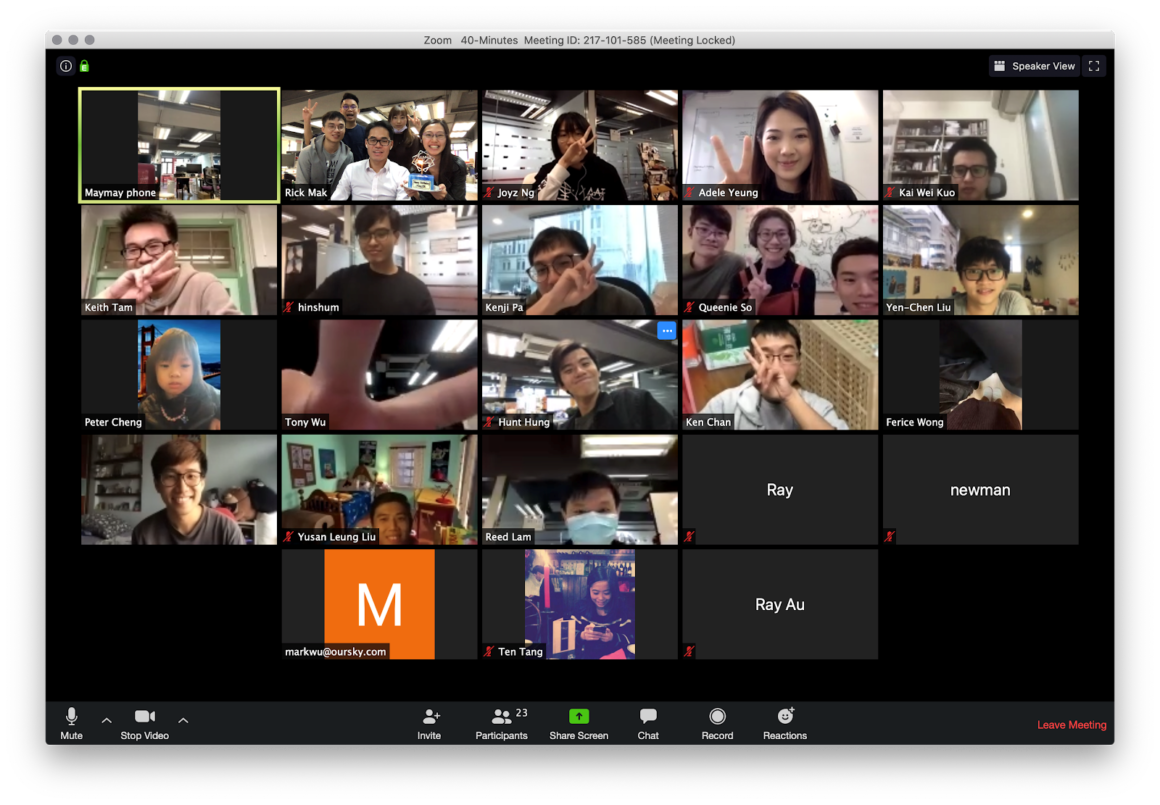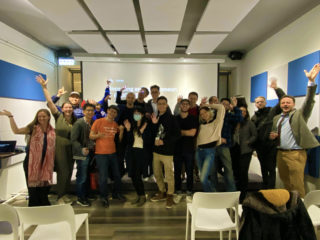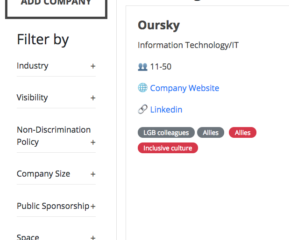The novel coronavirus pandemic is teaching people all around the world hard lessons. One of them is how to manage ourselves at work while hunkered down to our homes as we wait for everything to settle down. Remote working is abuzz and social distancing is nearly mandatory. A lot of companies are ramping up work-from-home arrangements and moving meetings online to protect the health of their employees.
Oursky has been a remote work-friendly company from the start. We are flexible with working hours and we can work from home any day we feel like because what really matters isn’t the presence of your physical self but our productivity. Being able to work at a time and a place that maximizes productivity is one of the philosophies we embrace. So when we closed the offices last month and asked everybody to work remotely, we already had every tool we needed to run the company remotely — Slack, Zoom, and Basecamp, to name a few. We were not in a panic.
But despite the comforts of working remotely, we are all learning to adapt to what can be an inevitable norm for everyone. Moving work from an office environment to the virtual world can be new (and distracting and stressful) to many, and this can be a challenge, even for us. In the past, we only had about one or two team members who dials in for our meetings. Now, everyone has to rely on Zoom for meetings. Before, the team is huddled in a laptop to discuss codes — now, we need to resort to Slack or our online channels for technical discussions, and things can get lost in translation.

I’ve jotted down what I’ve experienced so far while working remotely. I can look back at it in the future when we actually transition from being a remote work-friendly to a remote-first team. Here’s what I’ve observed so far:
More documented discussions
Since people can no longer discuss work face to face, we are seeing more discussions on our Slack and Basecamp channels. A good thing about written discussions is that they are naturally documented, and over time, a knowledge base can be created out of them. We are currently looking for better ways to organize all these written discussions. Some suggested creating an internal forum, but we are still exploring options that will work best for us.




People share more
At Oursky, our Friday nights are usually reserved for roundtables and discussions. They can be anything under the sun. Most of our conversations are related to software development — security in development cycles, multistage builds in Docker, the latest iconology update in Android and iOS. A colleague even once talked about Marxism. I shared about my love for poems. We gradually had less of these as everyone became more occupied with work.
Interestingly, this sharing culture returned in our current remote-first setting. Last week, our CTO Rick shared about our learnings in implementing micro frontends on Zoom and 15 people joined! The other day, another colleague hosted an online sharing on using Mermaid to generate diagrams. Maybe it is because listening to these discussions is simply like listening to podcasts. Unlike in meetings where you physically gather together, people do not have to stop everything they’re working on to join, thus encouraging them to participate.
Crowdsourcing tips and tricks
Even though we are a remote work-friendly company, many of us haven’t experienced working completely offsite for a long time. Ever since our CEO created a message on Basecamp to share tips on remote working, it has become a resourceful post. Below are a couple of tips from my colleagues that suited me best:
- Make use of the annotation function on Zoom.
- Although it is tempting to just jump on a Zoom meeting to discuss, write an agenda first (actually the same applies to face-to-face meetings).
- Try different light settings in office and non-office hours at home to help yourself focus at work.
- Try hardware and peripherals that will suit your work environment best, whether it’s the connectivity or audio quality. I found that Jabra Evolve 65 UC Wireless Headset is probably the most recommended, although Apple’s wired mic is also a good choice.
Making up the lack of physical social interactions with creative online activities
I enjoy working remotely a lot. There are fewer distractions and it improves my efficiency at work. But at the same time, I also miss going to the office and having fun with my colleagues. At the office, we celebrate everyone’s birthday and hang out for team dinner every month. Instead of cancelling all these social moments, we moved them online!

Using SCRUM poker online
We love SCRUM poker a lot and use it heavily in our sprint planning. Since we cannot play SCRUM poker in person now, everyone simply presents their cards to the laptop camera. It’s fine for now, but it is far from a perfect solution as we have to adjust the position of the card to make sure everyone sees the number. We discovered scrumpoker.online and fell in love with it, as it’s virtually like SCRUM poker without the paper cards.
Switching from Hangout to Zoom
We had been using Google Meet for online meetings because when you create an event on Google calendar, a Google Hangout link is attached automatically to the event. It is so convenient that you would not have to look for alternatives. The challenge came when we had to host a company monthly town hall meeting online. We are a team of over 50 techies, and Google Hangout starts to lag when there are 10 people in the room.
We tried Zoom. It worked perfectly, and we’ve subscribed to it since. We even added a Slack integration that creates a Zoom meeting in Slack when a simple command is typed in.
Make remote working work for you
The COVID-19 pandemic is surely pushing anxious trial runs of remote work and work-from-home arrangements all over the world. With me are thousands or millions of people taking refuge from the coronavirus at the comforts of our homes. Businesses will also need to adjust, whether in their policies, the technologies they use, and the culture they strive for. What we observe and learn in the next few weeks or months could redefine the future of work, with or without a pandemic.
Stay tuned for more of our stories and subscribe to our blog!










